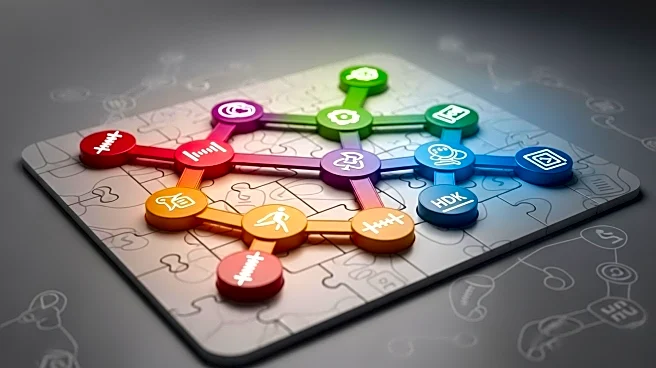What's Happening?
The New York Times has introduced a sports-specific version of its popular Connections word puzzle, in collaboration with The Athletic. This new edition, called Connections Sports Edition, challenges players to group sports-related terms that share a common theme. The game resets daily at 12 a.m. EST and features 16 words divided into four categories. On September 2, 2025, the categories included 'Money Made,' 'NHL Teams, Familiarly,' 'EFL Championship Clubs,' and 'Home Runs.' The puzzle aims to engage sports enthusiasts by incorporating familiar sports terminology into the word game format.
Why It's Important?
The introduction of Connections Sports Edition reflects the growing trend of gamification in media, particularly in the realm of sports. By partnering with The Athletic, The New York Times is tapping into a dedicated sports audience, potentially increasing engagement and subscription rates. This move also highlights the newspaper's strategy to diversify its offerings and cater to niche interests, thereby expanding its reach and influence in the digital space. The puzzle could serve as a daily touchpoint for sports fans, fostering community and interaction around shared interests.
What's Next?
As the Connections Sports Edition gains traction, The New York Times may explore further collaborations with sports organizations or expand the puzzle to include more diverse sports categories. Feedback from users could lead to adjustments in the game's format or difficulty level, ensuring it remains engaging and challenging. Additionally, the success of this initiative might inspire other media outlets to develop similar interactive content, further integrating sports into everyday digital experiences.
Beyond the Headlines
The launch of Connections Sports Edition may also influence how sports are perceived culturally, emphasizing the intellectual engagement they can offer beyond physical activity. This could lead to a broader appreciation of sports as a multifaceted domain, encompassing strategy, history, and community. Furthermore, the puzzle's format encourages critical thinking and pattern recognition, skills that are valuable in various aspects of life and work.










